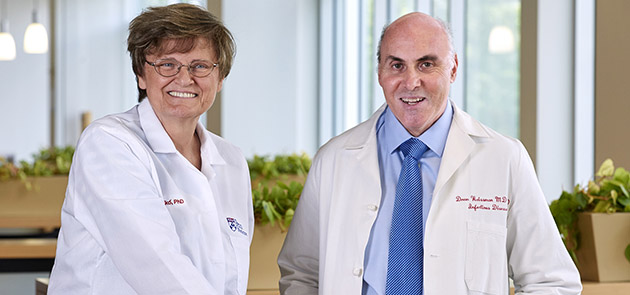Covid Vaccine Scientists Katalin Kariko and Drew Weissman Win Nobel Prize
In a year marked by the ongoing global battle against COVID-19, the Nobel Prize in Medicine for 2023 has been awarded to two brilliant scientists whose groundbreaking work paved the way for developing effective mRNA vaccines against the virus. Katalin Kariko of Hungary and Drew Weissman of the United States have been honoured for their contributions to science that have revolutionised the field and played a crucial role in safeguarding human health during one of the most challenging periods in modern history.
The Nobel Committee recognised the two scientists for their “discoveries concerning nucleoside-based modifications that enabled the development of effective mRNA vaccines against COVID-19.” This acknowledgement is a testament to the profound impact of their research, which fundamentally changed our understanding of how messenger RNA interacts with the human immune system.
Traditional vaccine development methods involved growing viruses or virus fragments in large cell cultures or chicken eggs, followed by purification processes. This approach was effective but time-consuming and often faced limitations in scalability. However, the emergence of the messenger RNA (mRNA) technology marked a significant departure from convention.
The mRNA approach takes a unique route, starting with a genetic code segment containing instructions for producing specific proteins. The human body becomes a mini vaccine factory when the right virus protein is selected as the target. However, the early attempts at directly injecting lab-grown mRNA into the body resulted in inflammatory reactions that rendered the mRNA ineffective.
Katalin Kariko and Drew Weissman addressed this critical challenge by making a small yet transformative modification to the RNA building blocks. This alteration made the mRNA “stealthy” enough to evade the body’s immune defenses, allowing for the successful delivery of mRNA-based vaccines.
Katalin Kariko, born in Szolnok, Hungary 1955, began her academic journey by earning a bachelor’s degree in biology in 1978 and later completing her doctorate in biochemistry in 1982 at the University of Szeged. She conducted postdoctoral research in Hungary and the United States before becoming an Assistant Professor at the University of Pennsylvania in 1989. Her extensive contributions led her to become vice president and later senior vice president at BioNTech RNA Pharmaceuticals. Currently, she holds positions as a Professor at Szeged University and an Adjunct Professor at the Perelman School of Medicine at the University of Pennsylvania.
Drew Weissman, born in Lexington, Massachusetts, in 1959, pursued his studies in biochemistry and immunology, culminating in an MD and a PhD from Boston University in 1987. After completing clinical training at Harvard Medical School’s Beth Israel Deaconess Medical Center and postdoctoral research at the National Institutes of Health, he established his research group at the Perelman School of Medicine at the University of Pennsylvania in 1997. Weissman, the Roberts Family Professor in Vaccine Research and Director of the Penn Institute for RNA Innovations, began his influential collaboration with Katalin Kariko in 1997.
Before the COVID-19 pandemic, mRNA vaccines were being explored for other diseases like Zika, influenza, and rabies. However, the urgency of the pandemic propelled mRNA vaccine technology into the global spotlight, highlighting its potential to revolutionise vaccine development.
The Nobel Committee member Gunilla Karlsson Hedestam emphasised that this prestigious award underscores the decades of foundational research underpinning such groundbreaking work. Moreover, it provides a much-needed validation of the speed and safety of COVID-19 vaccine development for sceptics worldwide.
The Nobel Prize in Medicine for 2023 honors the exceptional contributions of Katalin Kariko and Drew Weissman and underscores science’s pivotal role in addressing global health challenges. Their work has accelerated vaccine development and opened up new possibilities for combatting a wide range of diseases.


